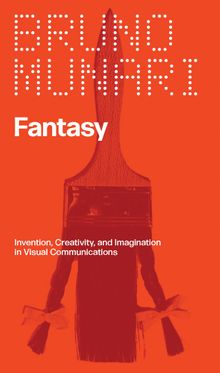| |||||||||||||||||||||||||
ARTIST MONOGRAPHS
|
|
in stock $24.95 Free Shipping UPS GROUND IN THE CONTINENTAL U.S. |
 Bruno Munari
Bruno Munari
Published by Corraini Edizioni.
Text by Aldo Tanchis.
One of the last surviving members of the Futurist generation, Bruno Munari (1907–98) was the enfant terrible of Italian art and design for most of the 20th century. In addition to his work as an artist and designer, Munari was a prolific bookmaker and authored some 40-odd books in his lifetime, ranging from Futurist manifestoes to design manuals to children’s books. Although these books have been widely read and translated into many languages, his incredible achievements in other mediums have yet to be gathered into a single collection.
This volume, originally published in 1987 and designed by Munari himself, was the first comprehensive account of his remarkable and vast oeuvre. Now available as a facsimile of the original edition—save for the updated cover—the book explores Munari’s relationship to the artistic trends of his times, his attention to the world of children and didactics, and the many other peculiarities that made Bruno Munari such an original figure. The hundreds of illustrations recreate Munari’s relentless inventiveness, his love of irony, chance and humor, his intensely experimental orientation and constantly fresh approach to new technologies and materials.
Bruno Munari (1907–98) was born in Milan, where he remained for most of his life. He was a proponent of the Italian Futurist movement, and one of the founders of Movimento Arte Concreta (MAC)—the Italian movement for Concrete art.
PUBLISHER
Corraini Edizioni
BOOK FORMAT
Hardcover, 9 x 11 in. / 144 pgs / 80 color / 180 bw.
PUBLISHING STATUS
Pub Date 9/3/2024
Active
DISTRIBUTION
D.A.P. Exclusive
Catalog: FALL 2024 p. 64
PRODUCT DETAILS
ISBN 9791254931011 TRADE
List Price: $50.00 CAD $71.00
AVAILABILITY
In stock
in stock $50.00 Free Shipping UPS GROUND IN THE CONTINENTAL U.S. |
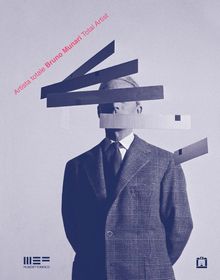 Bruno Munari: Total Artist
Bruno Munari: Total Artist
Published by Corraini Edizioni.
Edited by Claudio Cerritelli.
From drawings, designs, collages, paintings, sculptures, readable and not-so-readable books to new image reproduction techniques, industrial design, editorial graphics, architecture and new pedagogical ideas, the scope of Bruno Munari's (1907–98) activities is dauntingly vast. This book accordingly approaches his output as a universe of its own, eschewing analyses of style and development in favor of offering a journey through the “total art” of Munari.
Accompanying a 2017 exhibition at the Museo Ettore Fico in Turin, and including more than 500 reproductions, interviews with Munari and a critical essay, this book is a visual cornucopia and an exciting testimony to the diversity and originality of Bruno Munari’s art.
PUBLISHER
Corraini Edizioni
BOOK FORMAT
Paperback, 9.25 x 11.75 in. / 304 pgs / illustrated throughout.
PUBLISHING STATUS
Pub Date 2/27/2018
Out of stock indefinitely
DISTRIBUTION
D.A.P. Exclusive
Catalog: SPRING 2018 p. 77
PRODUCT DETAILS
ISBN 9788875706333 TRADE
List Price: $75.00 CAD $99.00
AVAILABILITY
Not available
STATUS: Out of stock indefinitely. |
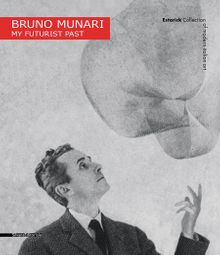 Bruno Munari: My Futurist Past
Bruno Munari: My Futurist Past
Published by Silvana Editoriale.
Edited by Miroslava Hajek, Luca Zaffarano. Text by Pierpaolo Antonello, Jeffrey Schnapp.
PUBLISHER
BOOK FORMAT
Paperback, 9.5 x 11 in. / 240 pgs / 280 color.
PUBLISHING STATUS
Pub Date 4/30/2013
Out of print
DISTRIBUTION
D.A.P. Exclusive
Catalog: SPRING 2013 p. 56
PRODUCT DETAILS
ISBN 9788836624751 TRADE
List Price: $45.00 CAD $55.00
AVAILABILITY
Not available
STATUS: Out of print | 00/00/00 For assistance locating a copy, please see our list of recommended out of print specialists |
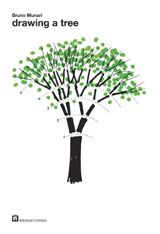 Bruno Munari: Drawing a Tree
Bruno Munari: Drawing a Tree
Published by Edizioni Corraini.
Artwork by Bruno Munari.
PUBLISHER
Edizioni Corraini
BOOK FORMAT
Paperback, 5.75 x 8.25 in. / 88 pgs / 88 color.
PUBLISHING STATUS
Pub Date 7/2/2004
Out of stock indefinitely
DISTRIBUTION
D.A.P. Exclusive
Catalog: FALL 2004 p. 97
PRODUCT DETAILS
ISBN 9788887942767 TRADE
List Price: $12.95 CAD $18.50
AVAILABILITY
Not available
STATUS: Out of stock indefinitely. |
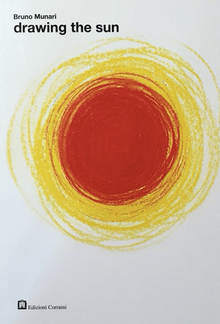 Bruno Munari: Drawing the Sun
Bruno Munari: Drawing the Sun
Published by Edizioni Corraini.
Artwork by Bruno Munari.
PUBLISHER
Edizioni Corraini
BOOK FORMAT
Paperback, 5.75 x 8.25 in. / 66 pgs / 64 color.
PUBLISHING STATUS
Pub Date 7/2/2004
Out of stock indefinitely
DISTRIBUTION
D.A.P. Exclusive
Catalog: FALL 2004 p. 97
PRODUCT DETAILS
ISBN 9788887942774 TRADE
List Price: $12.95 CAD $18.50
AVAILABILITY
Not available
STATUS: Out of stock indefinitely. |
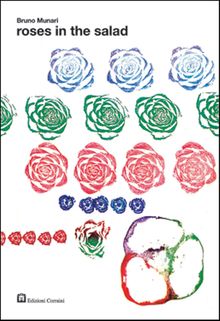 Bruno Munari: Roses in the Salad
Bruno Munari: Roses in the Salad
Published by Edizioni Corraini.
Artwork by Bruno Munari.
PUBLISHER
Edizioni Corraini
BOOK FORMAT
Paperback, 5.75 x 8.25 in. / 64 pgs / 64 color.
PUBLISHING STATUS
Pub Date 7/2/2004
Out of stock indefinitely
DISTRIBUTION
D.A.P. Exclusive
Catalog: FALL 2004 p. 97
PRODUCT DETAILS
ISBN 9788887942989 TRADE
List Price: $12.95 CAD $18.50
AVAILABILITY
Not available
STATUS: Out of stock indefinitely. |
